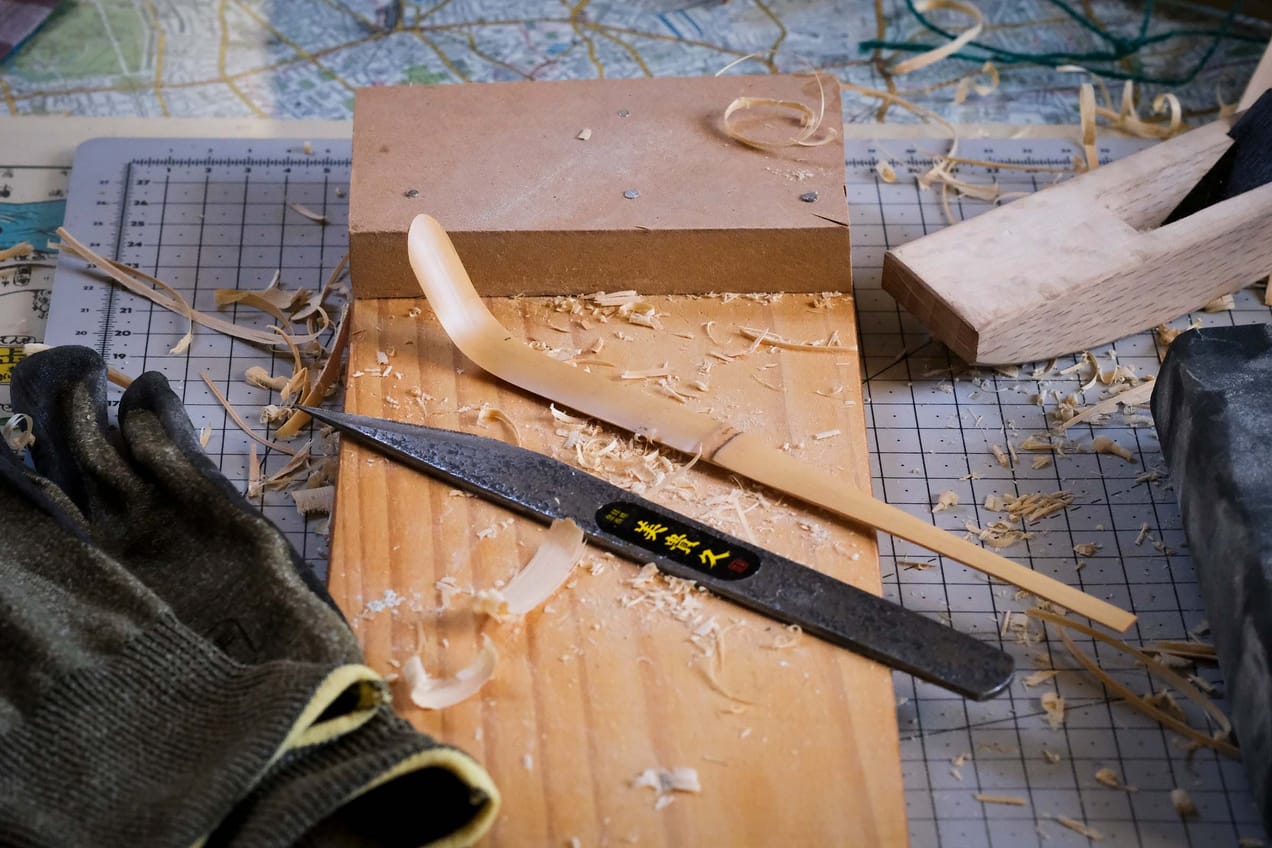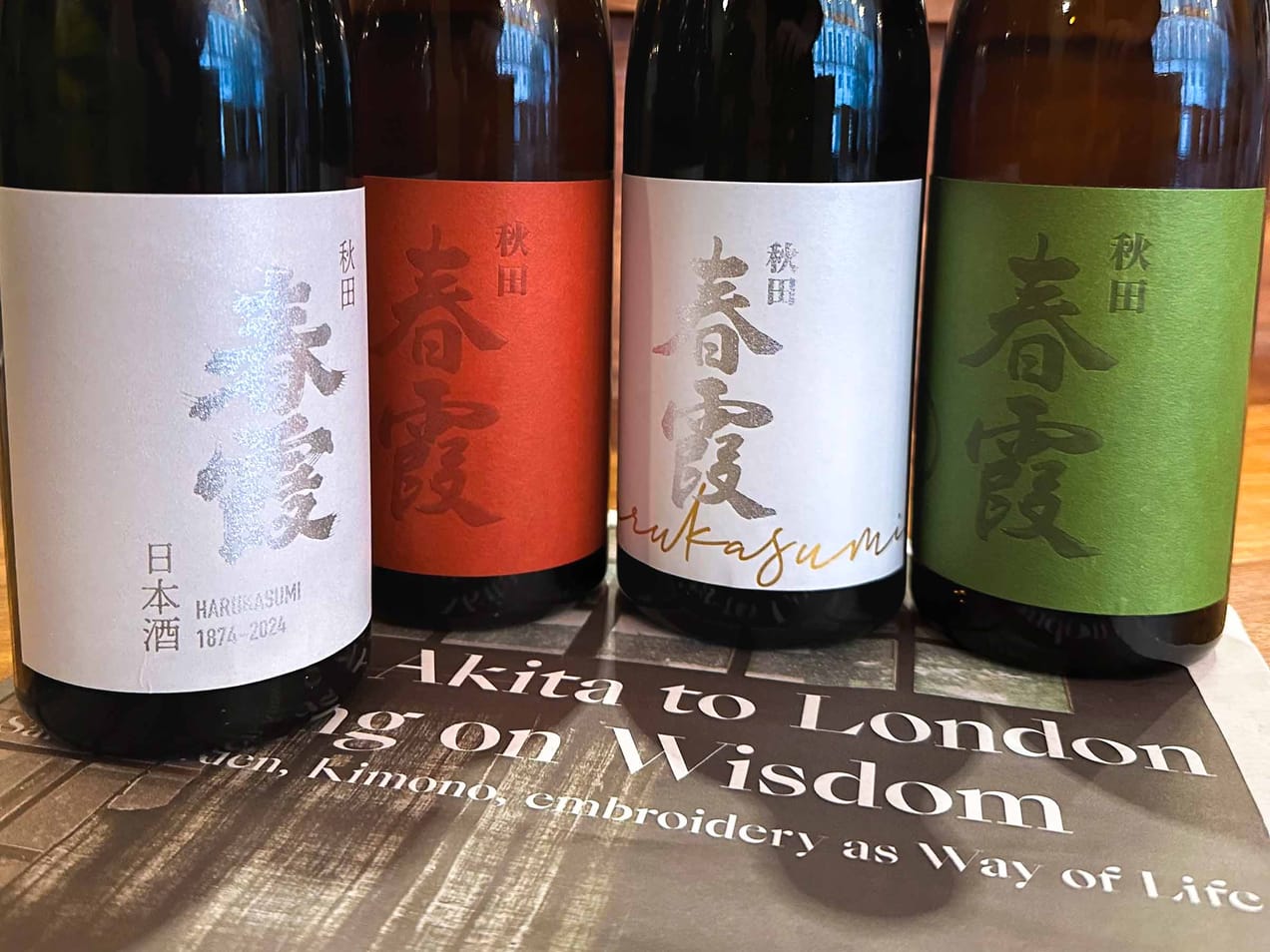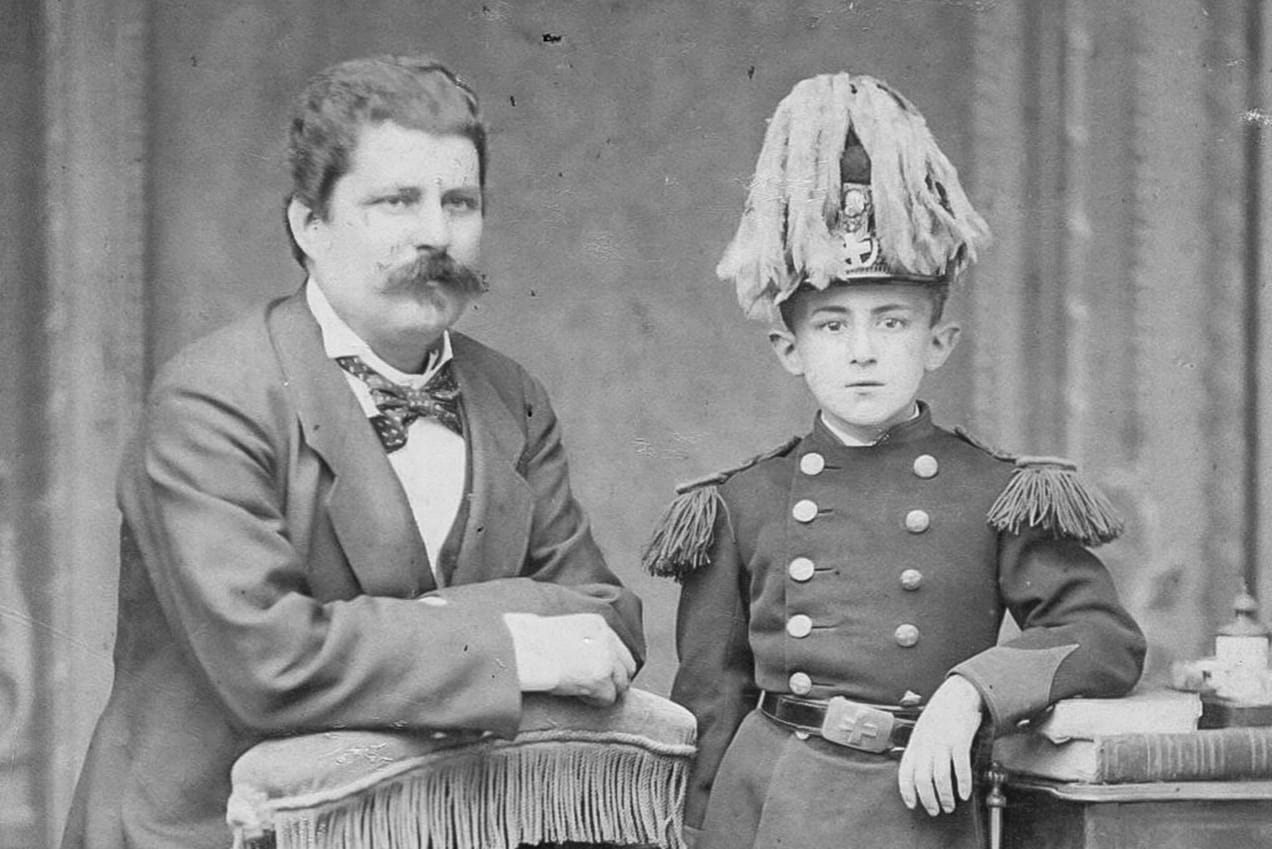Gianfranco Chicco
I'm a London-based creative producer, strategist and writer connecting design, technology and craft.
I write The Craftsman Newsletter.

London Design Festival
I was the Head of Content & Digital of London Design Festival (LDF), overseeing the 2021, 2022 and 2023 editions. Founded in 2003, London Design Festival celebrates and promotes the city as a design capital on the global stage and is one of the world's leading design events.
Teachings from Japanese craftsmanship: what is enough?
This essay has been adapted from a short talk I gave at the Grande Finale of the House of Beautiful Business in Lisbon on November 6th, 2019 (watch the video). In March of this year I quit my job. I was feeling exhausted physically and mentally, and there was something
What Wood Wants: Correspondence With Shuji Nakagawa
A week before my experience Kaida sensei, I found myself in another workshop in Shiga prefecture, this time starting not with carefully selected bamboo but with a mallet, a wedge and a massive tree trunk. I was visiting Shuji Nakagawa's studio - an accomplished artisan known for his
Mountain Eel: Making Chashaku with Kaida Sensei
When I confirmed my return to Kyoto, I took it as an opportunity to progress in my chashaku-making. My friend Toshiyuki Matsubayashi from the Asahiyaki kiln recommended we visit Mai Miyake's studio in the mountains of Shiga to study under Kaida sensei. When someone from a 400-year pottery
The Structure of Sui: Exporting Japan's Quiet Luxury
In November I made an unexpected return to Japan* after a 2-year hiatus to attend the presentation of the JAPAN SUI COLLECTION at the Kyōto Geihinkan (Kyoto State Guest House) within the Imperial Park. While the country is enjoying unprecedented global interest, from record tourism to the 'matcha effect&
Salt and Pepper at Kennin-ji
If you asked me barely a month ago, I would have told you that I was feeling down because I hadn’t been able to return to Japan in two years. And then, thanks to a tip by Erik during a press tour in Dubai I was involved with, I
Winter Special 2025: Books and Ceramics
There are two things I’m partial to and will often indulge in without too much thinking: books and ceramics. From my point of view, you can never have too much of any of them :) I'm returning momentarily to the origin of this newsletter in 2017, when it
Bamboo, Blades and YouTube
During the summer of 2025 I gave myself the task to learn to carve chashaku as part of my embodied research of Japanese crafts. If that sounds too esoteric, let me clarify. Chashaku (茶杓) are the small bamboo tea scoops used in the Japanese tea ceremony to transfer matcha from
Sketches of Japanese Craftsmanship in London, September 2025
Sketches are my half-baked ideas, projects and notes for articles. I scribble them on napkins, random notebook pages or in my phone’s notes app. Today's missive is from several activities I took part in during London Design Festival in September 2025. The common denominator was Japanese craftsmanship
Aliveness (what machines can't make)
Have you ever held an object and felt the maker's presence in your hands? In art they call it 'aura'. It's what distinguishes an original painting from its reproduction, what you hear in Miles Davis or Nina Simone’s live jazz performances, what you
Summer Special 2025
Last year’s summer special proved to be pretty popular so here I am at it again with highlights of what to read, listen, watch and visit in the next few months, all of them relating to craft and design in one way or another. But I’m also curious
Off the Hump: Poetry of Clay with Tarragon Smith
This webinar is part of The Summer Sessions: Craft & Design, a series of online conversations with craftspeople, designers, academics and storytellers. The previous one was on miracle fibres from Patagonia with Cindy Lilen. Tarragon Smith is a thoughtful person. Before I met him, his tea bowls 'spoke'
Miracle Fibres: From Patagonia to London with Cindy Lilen
What happens when ancient Andean wisdom meets contemporary design on one of London's most prestigious stages? The answer lies in a darkened room at Somerset House where visitors sit on felted benches, touching raw vicuña wool while listening to ancestral sounds. Textile artist Cindy Lilen co-created 'SUR
Portrait from the Family Album, 1878ca
This is an old photo from the family album. The boy in uniform was probably my grandfather (Ernesto Chicco), and the man next to him my great-grandfather. Unfortunately, I don't know for sure. The last person who likely knew was my late father. The photo, an albumen print,



























